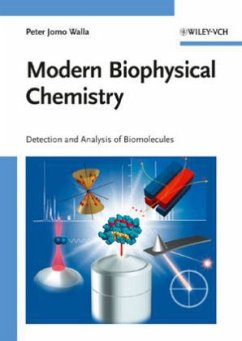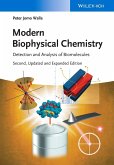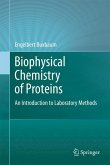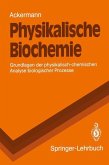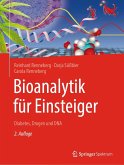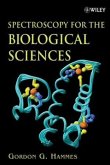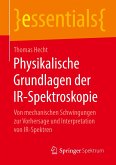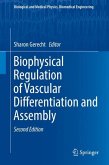A brief introduction that enables any reader with basic knowledge of biochemistry or biophysics to become an expert on current technology for the analysis of proteins and other biomolecules, with a focus on modern methods used in industrial and top-level academic research.
The only introductory text to address contemporary methods, the really interesting stuff to spice up a standard biophysics courseis to be found here. Accessible and didactically written, it is based on a graduate course taught by the author for several years. By presenting a mix of basic theory and real life application examples, he successfully bridges the gap between theory and experiment.Divided into three major parts, this advanced textbook explains all relevant methods used in current industrial research. The first part, basic biophysical chemistry, surveys basic spectroscopic techniques and properties that are the prerequisite for the more sophisticated technologies discussed in the remainder of the book. The second part covers modern, cutting-edge bioanalytical techniques based on physical methods, such as confocal fluorescence, ultrafast spectroscopy, optical tweezers, single molecule electrical measurements, quantum dots, and single molecule force microscopy. The third part addresses the specific requirements of industry-scale methods, such as high-throughput and automatisation.Readers with a basic understanding of biochemistry and/or biophysics will quickly gain an overview of current technology for the biophysical analysis of proteins, nucleic acids and other biomolecules and their interactions. Equally, any student contemplating a career in the chemical, pharmaceutical or bio-industry will greatly benefit from the technological knowledge presented.
The only introductory text to address contemporary methods, the really interesting stuff to spice up a standard biophysics courseis to be found here. Accessible and didactically written, it is based on a graduate course taught by the author for several years. By presenting a mix of basic theory and real life application examples, he successfully bridges the gap between theory and experiment.Divided into three major parts, this advanced textbook explains all relevant methods used in current industrial research. The first part, basic biophysical chemistry, surveys basic spectroscopic techniques and properties that are the prerequisite for the more sophisticated technologies discussed in the remainder of the book. The second part covers modern, cutting-edge bioanalytical techniques based on physical methods, such as confocal fluorescence, ultrafast spectroscopy, optical tweezers, single molecule electrical measurements, quantum dots, and single molecule force microscopy. The third part addresses the specific requirements of industry-scale methods, such as high-throughput and automatisation.Readers with a basic understanding of biochemistry and/or biophysics will quickly gain an overview of current technology for the biophysical analysis of proteins, nucleic acids and other biomolecules and their interactions. Equally, any student contemplating a career in the chemical, pharmaceutical or bio-industry will greatly benefit from the technological knowledge presented.

